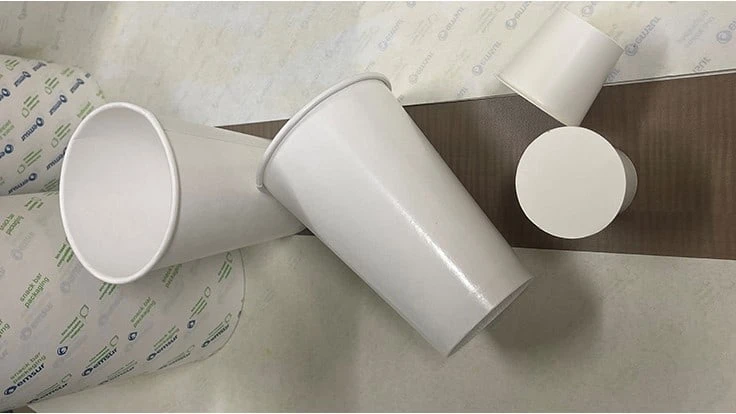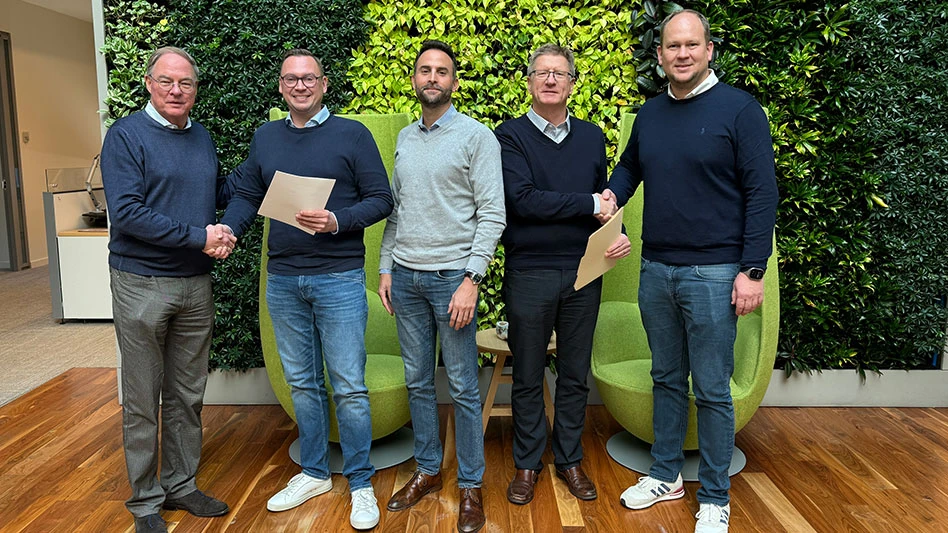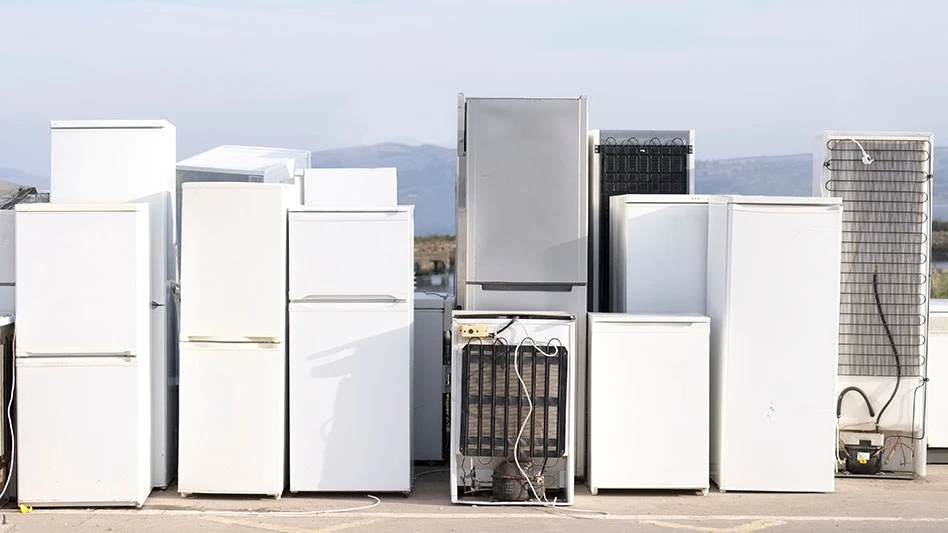
Photo provided by J&J Green Paper
The use of paper traces back to ancient civilizations. Its origins as a packaging or food service material may not go back quite that far, but paperboard’s established place in these sectors is one factor that has helped it create and maintain a recycling rate that outpaces plastic.
While paper and board’s recyclability can be a source of pride, the material is far from having achieved a 100 percent recycling rate. Paperboard in some applications has even struggled to find a cost-effective end market, helping to inspire some new thinking and research.
Miami-based J&J Green Paper has identified takeout coffee cups as one of those applications where a “green” outcome has been hard to find. The company’s proposed solution is a barrier material called Janus, which it describes as being organic, biodegradable, “backyard compostable” and fully recyclable with a “high repulpability” rate.
“While paper on its own is not a threat to the environment, the supplemental coatings and chemicals added to it, like polyethylene to reinforce cups made to hold your morning coffee, pose a serious threat,” writes the company. “In fact, 58 billion paper coffee cups end up in landfills each year.”
J&J Green Paper says Janus can replace single- and double-sided containers for hot or cold products, using the “same manufacturing technology as current methods,” thus causing “minimal supply chain disruption.”
Scott Segal, the company’s president, says, “Janus renders any paper coated with it recyclable. One of the nation’s biggest recyclers/repulpers ran testing that determined 97.4 percent of the material collected was deemed not contaminated, and was able to be pulped, which is considerably more than [many] other products that claim to be recyclable.”
Although coffee cups were an initial target market for Janus, and remain so, Segal says the COVID-19 pandemic caused shifts in consumer behavior that have helped point out new opportunities for the material.
“Since the pandemic began, the cup business has dropped dramatically and the takeout food business has grown even larger because of all the food now either being taken home cooked or from the marketplace for cooking at home,” Segal says.
“Even though we have used the cups as an entry point, there are other markets that dwarf the cup market, especially in Europe,” he continues. “The paper that food is wrapped in, like hamburger wrap or fish wrapping, plus the take-away food cartons—that business has grown exponentially since the pandemic.”
The J&J Green Paper search for additional markets has spread not just to other types of packaging but has broadened geographically, Segal says. In August 2020, J&J Green Paper licensed its proprietary formula to Hong Kong-based CST Green Resources Ltd. CST will manufacture green paper products using J&J’s technology in facilities in Indonesia, Malaysia and Singapore, with plans for eventual distribution throughout Southeast Asia.
“Besides our agreement in Asia, we are at the table with several major United States, European Union and two Latin American operators that have all completed their testing with extremely positive results, and we are negotiating the licensing with each of them for regions,” Segal says.
J&J Green Paper sees a selling point not only in touting a boost for paper recycling, but also by playing into widely shared concerns about the low recycling rate of plastic and its tendency in some parts of the world to end up in the natural environment.
Paperboard coated with Janus could provide an alternative in some applications where plastic has dominated in recent decades, and Segal points to straws as one example. “We are in talks with the world’s largest straw manufacturer, who has been refitting its operations from plastic to paper and is negotiating with us for the exclusive global straw business with Janus.”
In a business and policy environment where sustainability and recycling outcomes have gained favor, J&J Green Paper may be poised to help paper not just retain but grow its circular economy credentials.
Latest from Recycling Today
- Mack Trucks partners with LEGO on EV truck building set
- Radius publishes FY24 sustainability report
- ABTC joins effort to develop future battery and EV workforce
- Partnering to improve aluminum’s circularity
- BIR prepares EU recycling shipments guidance for members
- Outokumpu sees slowdown in Q4
- HyProMag USA aims to develop rare earth magnet facility in US
- Machinex, PureCycle work together on plastics preprocessing facility





